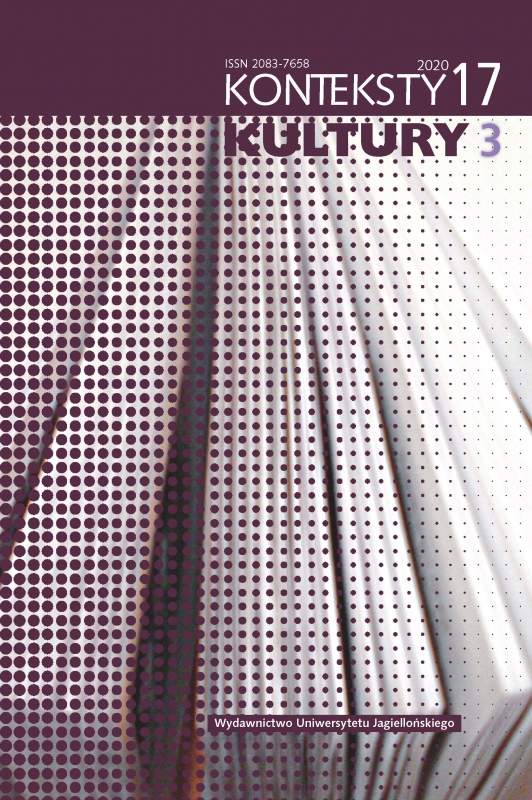„Więc nie ma żadnej choroby w Wenecji?” Obraz epidemii w noweli Tomasza Manna Śmierć w Wenecji
“So There Is No Malady in Venice?” The Image of an Epidemic in Thomas Mann’s Short Story Death in Venice
Author(s): Ireneusz ZiemińskiSubject(s): Language and Literature Studies, Studies of Literature
Published by: Wydawnictwo Uniwersytetu Jagiellońskiego
Keywords: Venice; Asiatic cholera; epidemic; art; death; Wenecja; indyjska cholera; epidemia; sztuka; śmierć
Summary/Abstract: The topic of the paper is the complex image of a cholera epidemic in Thomas Mann’s short story Death in Venice. In the first part of the text, devoted to the symbolism of the disease, Asiatic cholera is interpreted as a symbol of human finitude (mortality) and a manifestation of the degeneration of the artist, who, having previously led an ascetic life, falls in love with a teenage boy. Asiatic cholera becomes a symbol of the body rebelling against the mind, which is also reflected on the level of Western culture (reason, discipline) succumbing to Eastern influences (sense, spontaneity). Therefore, Mann’s story can be interpreted from the perspective of colonial discourse, according to which the East is perceived as a threat to Europe; in the narrator’s view, the source of Asiatic cholera is the climate of India and its poor level of medical knowledge. In the second part, devoted to human attitudes towards the epidemic, the article presents the local government’s policy towards the collective threat; despite the growing number of deaths and infections, the politicians are calming people down, claiming that the situation is completely under control and any sanitary restrictions are introduced as a mere precaution. The reason behind the lie (also repeated by the inhabitants of Venice) is the threat of bankruptcy faced by the people who make their living from tourism. The epidemic is also an opportunity for robberies and even murders, because criminals believe that in these circumstances they will remain unpunished. This pessimistic image suggests that humans are egoistic and care more about their own fate than the fate of others when standing in the face of danger.
Journal: Konteksty Kultury
- Issue Year: 17/2020
- Issue No: 3
- Page Range: 283-311
- Page Count: 29
- Language: Polish

